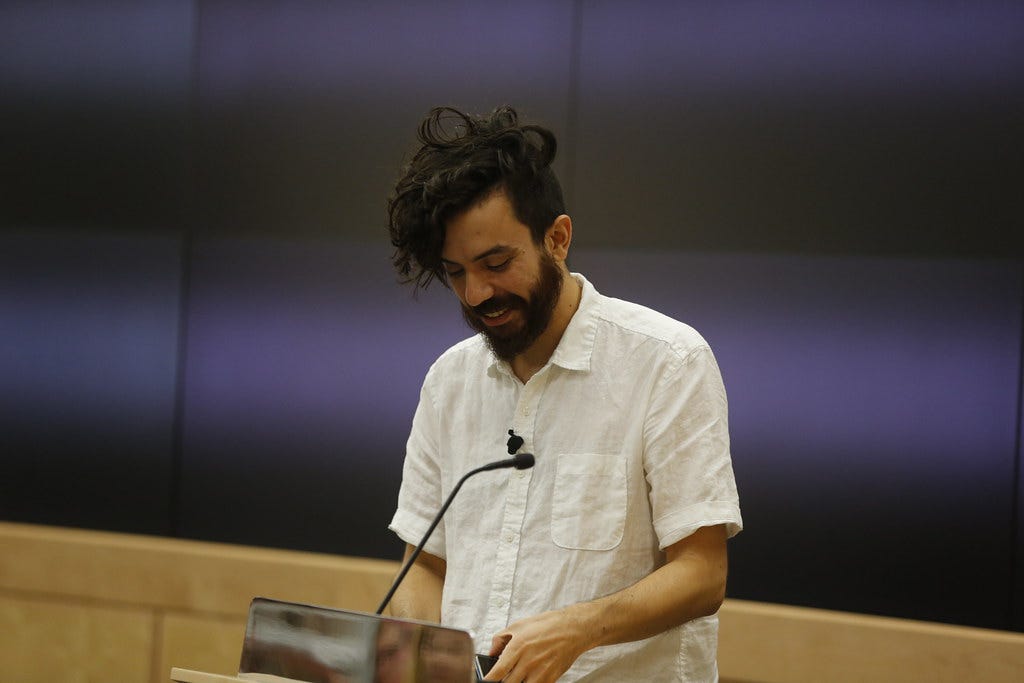Mama, mama, mama, mama! Children learn early the power of repetition. And repetition is powerful. Listen to any moving political speech or religious sermon, most good songs. Feel your resolve breaking down on the eight millionth demand for a donut or a pony or an Electronic Star Wars Narwhal Princess or whatever it is kids want these days. Repetition is one way of making meaning, of giving an argument rhetorical weight. Repetition is also one of the simplest ways for children to give a form to their poetry.
There are many ways to use repetition to prompt writing:
Try starting with writing poems where every line begins with the same word or phrase. I wish, I dreamed, My brother, If, When I am old: so many good possibilities.
I Wish
I wish snow cones were trees with gumdrop berries.
I wish rainbow sherbet was snow.
I wish candy canes were tall grass.
I wish every mountain was made of rock candy
And gummy bears were alive.
~ Jillian
Try alternating between two: I used to/but now I, People say/but I know, Dogs/cats….
Try ending every line with the same word instead.
Listen to Martin Luther King Jr.’s “I Have a Dream” speech and write poems about your own dreams, personal or for the world:
I Had a Dream
I had a dream I had a yacht. I had a butler. I had a dream I had a queen-size bed. I had a dream I had a pool. I had a dream I had a Honda. I had a dream I had a walk-in closet. I had a dream I had a pony. I had a dream I had a hover board. I had a dream I had body guards. I had a dream. I had a dream I had xfinity 1. I had a dream I had a dog. I had a dream I was rich. Drop the mike.
~ Zion
Try beginning each line with Let or May, feeling your words invoke the future you want or a blessing you want to bestow.
Or just put the same word somewhere in every line (except one!), as Kaveh Akbar does in “Orchids Are Sprouting From the Floorboards.” My students LOVE this poem, and write easy and wonderful poems in its vein. It’s such a playful, vivid, and mysterious poem, it speaks right to children’s sensibilities.

Kaveh Akbar at the 2018 Levis Reading Prize Night
And Akbar is alive and writing now, and is a kind and active presence on Twitter among other places. Poets are real! They’re alive! They aren’t just wan and wistful dead men in cravats.
However, speaking of dead poets of the traditional canon, Edward Lear (who like Kavah Akbar should enter the Most Awesome Poet Portrait Hair and Beard competition) does beautiful things with repetition, and with flipping phrases around for great and repetitive emphasis.

Edward Lear in 1887
Here’s the first verse of Lear’s poem “The Jumblies” to illustrate.
They went to sea in a Sieve, they did,
In a Sieve they went to sea:
In spite of all their friends could say,
On a winter’s morn, on a stormy day,
In a Sieve they went to sea!
And when the Sieve turned round and round,
And every one cried, ‘You’ll all be drowned!’
They called aloud, ‘Our Sieve ain’t big,
But we don’t care a button! we don’t care a fig!
In a Sieve we’ll go to sea!’
Far and few, far and few,
Are the lands where the Jumblies live;
Their heads are green, and their hands are blue,
And they went to sea in a Sieve.
When I went on maternity leave, my dear friend Audrey Freudenberg led my class and taught “The Jumblies.” She dug into the repetition and turned phrases, teaching the kids lovely rhetorical words like chiasmus to describe what they heard. The kids memorized the poem and performed it alongside a crankie (a sort of scrolling paper movie) that illustrated it. And I heard echoes of it in nearly all of their poems that year. Audrey asked them to use Lear-like chiasmus in their writing, but once their ears became attuned to its rhythms, it became their own.
Try repeating words and phrases in your poem. Far and few, far and few. Try repeating things by flipping them around. They went to sea in a sieve, they did, in a sieve they went to sea. Try repeating part and changing part. We don’t care a button! we don’t care a fig! Try doing whatever feels good and satisfies your ear. You can’t go wrong, you can’t go wrong.




Ohh I love this! Teaching kids about how language can be playful and creative is a great thing. I grew up on Edward Lear and Dennis Lee’s Alligator Pie and I love writing. I’m hoping to foster that same love in my daughter and I forgot all about these 2 poets until just now.